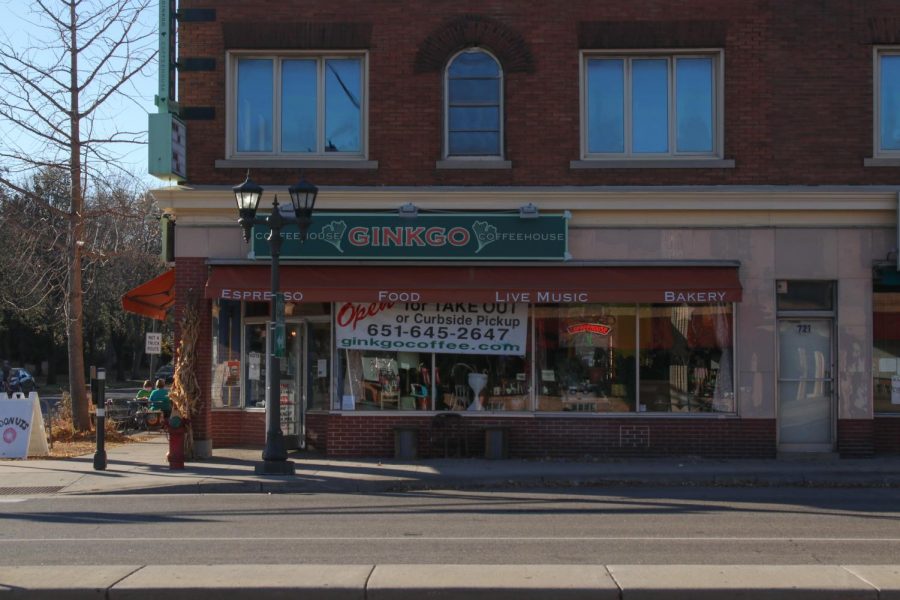SELF-CARE IS FREE!
Debunking self-care as a consumption-based activity.
Lauren Thompson
This week, journals were available to be picked up for free outside of the Anderson Center. The package included a pen and bookmark with suggestions on how to express your thoughts in a civil way. Journaling can be a great way to express one’s feelings, either to get it off their chest or to creatively express oneself.
November 11, 2020
In 2019, Marketdata Enterprise Inc. released the study “The Market For Self-improvement Products & Services” which revealed the “self-improvement” industry in America to be worth $11 billion!
According to Oxford Dictionary, “Self- improvement” is the “improvement of one’s knowledge, status, or character by one’s own efforts.”
An aspect of self-improvement is self-care, often promoted as “treating yourself.” Companies market self-care as an activity that requires purchase, whether it be a soak in the tub with a Lush bath bomb, a Travis Scott meal at McDonald’s or a book on how to love yourself and get over that good-for-nothing ex.
But self-care does not require consumption! Anything done to deliberately care for personal health is an act of self-care.
For senior Quinn Siegman, self-care is making lists of the tasks he needs to complete.
“It’s soothing to know that I can see what I need to do,” he said.
Junior, Catie Clausz performs self-care by taking naps.
Jazmin Clausen-Thomas, a sophomore, has affirmations decorated around her room and listens to music to get pumped up for her day.
List making isn’t for everyone. While Clausen-Thomas enjoys scrolling through Tik Tok after a stressful day, she makes sure to take breaks from social media when needed.
“Everyone has their own way, you just have to find what’s best for you,” said Claussen-Thomas.
Personal health and wellbeing are multidimensional. According to Dr. Bill Hettler, the co-founder of the National Wellness Institute, the aspects of one’s health includes physical, emotional, intellectual, spiritual and social.

Sometimes, a change of space is a refresher on the mind. Taking a walk is a way to get some fresh air and sunshine. Those living on campus can easily walk to Ginkgo Coffeehouse on Snelling Ave. for a quick bite or caffeine pick me up. Pictured: Exterior of Ginkgo Coffeehouse from across Snelling Ave.
That’s a lot to care for! With each of these aspects making up overall health, it is inaccurate to assume that self-care is the same all around.
Siegman says, “Everybody has different needs, anxieties, and stressors.”
The market audience for self-improvement is not always inclusive. Clausen-Thomas says that self-care is “gender-specific in society when everyone needs it.”
Neglecting one’s own needs is harmful and consequential no matter who you are. Unattended anger may release itself in outbursts that damage relationships. Sleep deprivation negatively impacts grades and performance. A lack of gratitude can make life feel monotonous. Without self-care, upholding responsibilities becomes a sacrifice and happiness becomes a luxury.
The neglect of one’s needs is not always a conscious choice, but oftentimes the result of a lack of self-awareness.
“Self-awareness gives us a chance to tune into what we are feeling, what we need and how we can best care for ourselves. Bottom line, without self-awareness there can be no self-care,” writes Nancy Jane Smith, a licensed counselor and blogger for livehappier.com.
Developing children rely on their guardians as models for how to manage stress and perform self-care, but the truth is many people do not have a healthy example of what this looks like.
Understanding the multidimensions of personal health can help create this awareness.
Physical health includes nutrition and activities to ensure the optimal function of the body. This might be a daily walk for one individual and monitoring blood sugar levels for another. Mental health is a component of physical health as well. Take prescribed medication as necessary and try counseling! Everyone needs a safe space and an open ear.
Some people have this safe space within a friend group, church, or another place in their community. Even people who recharge on their own should interact with others once in a while to maintain social health. Put the phone down for a moment and acknowledge a person walking by! A smile is recognizable under a mask!
Hopefully, college is intellectually stimulating, but the learning does not just happen in class. Research interesting topics, play some chess, complete a riddle or sudoku. Neuroplasticity occurs whenever something new is learned or memorized!
Lastly, membership in organized religion or preexisting religious beliefs are not required for spiritual self-care. Make a dream board or go to the Como Conservatory. The goal of spiritual care is to connect with one’s true self.
Schedule time to assess your well-being and make a plan to integrate self-care into the week.


